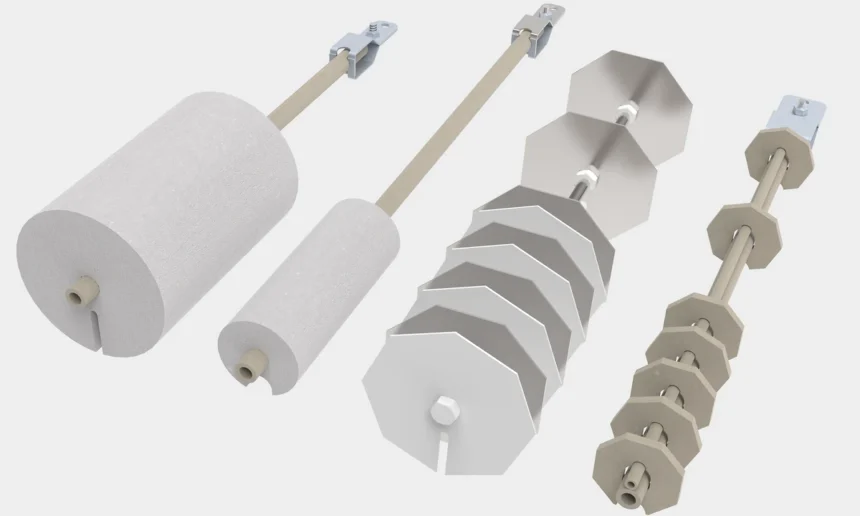In the world of modern technology and industry, precision is everything. Whether it’s for medical devices, aerospace components, or even scientific instrumentation, precision tubing is crucial in ensuring performance, reliability, and safety. Among the various options available, Tubes have emerged as a leading choice for industries that demand accuracy, durability, and specialized designs.
Precision and Versatility for Specialized Applications
TG Tubes represent a high-quality solution designed to meet the stringent demands of various specialized fields. These tubes are known for their precise manufacturing, material strength, and their ability to be customized for highly specific applications. From intricate medical applications to heavy-duty industrial uses, these Tubes are paving the way for innovation.
Unveiling the Versatility and Future in Precision Tubing
This article explores the world of TG Tubes, shedding light on their uses, their production process, the industries that rely on them, and how they play an essential role in shaping the future of precision tubing. We’ll also delve into the materials used in TG Tubes, their benefits, and the reasons why they are trusted in various high-tech applications.
The Rise of TG Tubes
The demand for high-performance tubing has grown significantly over the last few decades. As industries evolve, the need for tubing that can meet specific standards and perform in harsh conditions has risen as well. These are a direct response to this demand. Whether it’s the manufacturing of medical equipment that requires ultra-thin and flexible tubing or aerospace systems that depend on tubing capable of withstanding extreme temperatures and pressures, Tubes provide the precision and reliability required in these cutting-edge fields.
Ensuring Consistency and Reliability
These Tubes are manufactured to the highest standards, ensuring consistent wall thickness, tight tolerances, and uniformity, which are crucial in critical applications where even a small variation could lead to a failure in performance.
The Applications of TG Tubes
One of the most impressive features of TG Tubes is their versatility. They are used in a wide range of industries, each with its own set of requirements. Below are some of the key industries that rely on these Tubes for their specialized needs:
1. Medical Industry
In the medical field, tubing is used in various applications, including surgical instruments, catheters, and drug delivery systems. These are often used in medical equipment because they can be produced with ultra-thin walls, allowing for precise control in procedures where flexibility and strength are crucial. For instance, catheters and endoscopic tools require tubing that can maneuver within the human body without compromising strength or precision.
Biocompatible Materials: The Backbone of Medical-Grade
Materials used in these for medical applications are biocompatible, ensuring that they can safely interact with human tissue without causing irritation or reactions. Stainless steel, titanium, and certain polymers are commonly employed to manufacture medical-grade Tubes.
2. Aerospace and Defense
Aerospace applications demand tubing that can withstand extreme temperatures, high pressures, and corrosive environments. TG Tubes are designed to meet these tough requirements. They are often used in fuel systems, hydraulic systems, and structural components of aircraft, rockets, and satellites.
Aerospace and Defense Applications
The lightweight yet strong materials used in TG Tubes, such as titanium and certain high-performance alloys, are crucial for reducing weight while maintaining the integrity of aerospace systems. Furthermore, these are also resistant to vibration and shock, making them ideal for defense applications.
3. Semiconductor Industry
The semiconductor industry requires extremely clean and pure materials to avoid contamination during the manufacturing process. These are used in gas and liquid delivery systems within semiconductor fabrication plants. Their smooth interior surfaces and resistance to corrosion make them perfect for transporting sensitive materials without contamination.
Ensuring Purity: The Importance of High-Purity Materials
High-purity stainless steel and other inert materials are used to manufacture TG Tubes for semiconductor applications, ensuring that no particles or impurities compromise the sensitive processes involved in semiconductor fabrication.
4. Oil and Gas Industry
In the oil and gas sector, precision tubing is needed for drilling, wellhead control, and transporting fluids under high pressure. These are utilized in these systems due to their ability to withstand high pressures and harsh environmental conditions, including exposure to corrosive gases, chemicals, and fluctuating temperatures.
Corrosion Resistance and Durability
These tubes used in the oil and gas industry are typically made from corrosion-resistant alloys such as Inconel or Hastelloy, providing durability and long service life even in the most challenging environments.
5. Automotive and Transportation
In the automotive industry, TG Tubes are used in systems such as fuel lines, brake systems, and air conditioning. The lightweight and high-strength properties help to improve vehicle efficiency and safety, especially in high-performance or heavy-duty vehicles. These tubes can be manufactured in various sizes and configurations to suit the specific needs of modern automotive designs.
Materials Used in TG Tubes
The choice of materials is crucial in the manufacturing of TG Tubes. The most common materials include:
Stainless Steel: Known for its corrosion resistance and strength, stainless steel is often used in medical, food processing, and industrial applications. Tubes made from stainless steel are durable and capable of withstanding harsh environments.
Titanium: Titanium is lightweight, strong, and resistant to corrosion, making it ideal for aerospace and medical applications. These tubes made from titanium are often used in systems where weight reduction is crucial without sacrificing strength.
Nickel Alloys: Nickel-based alloys such as Inconel and Hastelloy are used for applications requiring high heat resistance and corrosion protection. These materials are ideal for the oil and gas industry as well as chemical processing.
Polymers: For certain medical and specialized industrial applications, high-performance polymers are used to create flexible and chemically resistant TG Tubes. These tubes are often used in fluid handling systems and medical devices where flexibility is critical.
Benefits of TG Tubes
The use of TG Tubes offers several distinct advantages:
Precision and Consistency: TG Tubes are manufactured to tight tolerances, ensuring consistency in wall thickness, diameter, and overall performance. This precision is critical in industries where small variations can lead to failure or reduced efficiency.
Material Strength and Durability: Whether made from metals or polymers, TG Tubes are designed to withstand extreme conditions, including high temperatures, pressures, and corrosive environments. This makes them ideal for demanding applications in aerospace, oil and gas, and medical industries.
Customization: TG Tubes can be customized to meet specific needs, including size, shape, material, and performance characteristics. This flexibility makes them suitable for a wide range of specialized applications.
Corrosion and Chemical Resistance: TG Tubes are often made from materials that resist corrosion and chemical degradation, ensuring long-term durability even in harsh environments such as chemical processing plants or deep-sea oil rigs.
Lightweight Options: For applications where weight is a critical factor, such as in aerospace or automotive industries, TG Tubes can be manufactured from lightweight materials like titanium, reducing overall system weight while maintaining strength.
Production Process of TG Tubes
The manufacturing process of TG Tubes involves several steps to ensure that they meet the highest standards of quality and performance. The process typically begins with the selection of raw materials, which are then formed into tubes through extrusion, drawing, or welding techniques. Each step is carefully monitored to maintain the precise dimensions and material properties required for the final application.
Rigorous Testing and Quality Assurance: Ensuring the Reliability
Once the tubes are formed, they undergo a series of inspections and tests to ensure they meet the necessary specifications. These tests may include pressure testing, dimensional inspection, and material analysis to verify that the tubes can withstand the conditions they will face in real-world applications.
Future Trends in TG Tubes
As industries continue to evolve, the demand for more advanced and specialized tubing solutions will only grow. TG Tubes are poised to play a critical role in this future, with ongoing advancements in materials science and manufacturing techniques allowing for even greater precision and performance.
Expanding TG Tube Capabilities with Smart Materials and 3D Printing
Emerging trends such as the use of smart materials, nanotechnology, and 3D printing are expected to further expand the capabilities of TG Tubes, enabling them to meet the increasingly complex demands of fields like biomedical engineering, renewable energy, and space exploration.
FAQs About TG Tubes
Q1: What industries use TG Tubes?
A: TG Tubes are used in a wide range of industries, including the medical, aerospace, oil and gas, semiconductor, and automotive sectors. They are chosen for their precision, durability, and ability to be customized for specific applications.
Q2: What materials are TG Tubes made from?
A: TG Tubes can be made from various materials, including stainless steel, titanium, nickel alloys, and high-performance polymers. The choice of material depends on the application and the environmental conditions the tubes will face.
Q3: Are TG Tubes customizable?
A: Yes, TG Tubes can be customized in terms of size, shape, material, and performance characteristics to meet the specific needs of different applications.
Q4: What makes TG Tubes suitable for medical applications?
A: TG Tubes used in medical applications are made from biocompatible materials like stainless steel and titanium. They can be manufactured with ultra-thin walls for precision and flexibility, which is essential in surgical tools, catheters, and other medical devices.
Q5: How are TG Tubes tested for quality?
A: TG Tubes undergo various tests, including pressure testing, material analysis, and dimensional inspection, to ensure they meet the required specifications and can withstand the conditions of their intended application.
Q6: What are the future trends in TG Tubes?
A: Future trends include the development of smart materials, the integration of nanotechnology, and the use of 3D printing to create more advanced and specialized TG Tubes for applications in emerging industries such as renewable energy and space exploration.
Conclusion
In conclusion, TG Tubes are more than just simple tubing—they are precision-engineered components designed to meet the demands of modern industries. Whether it’s in medical devices, aerospace systems, or industrial applications, TG Tubes deliver the reliability, strength, and performance needed for specialized uses.
As industries continue to evolve and demand even higher levels of precision, TG Tubes will undoubtedly remain at the forefront of innovation, enabling the next generation of technological breakthroughs.








